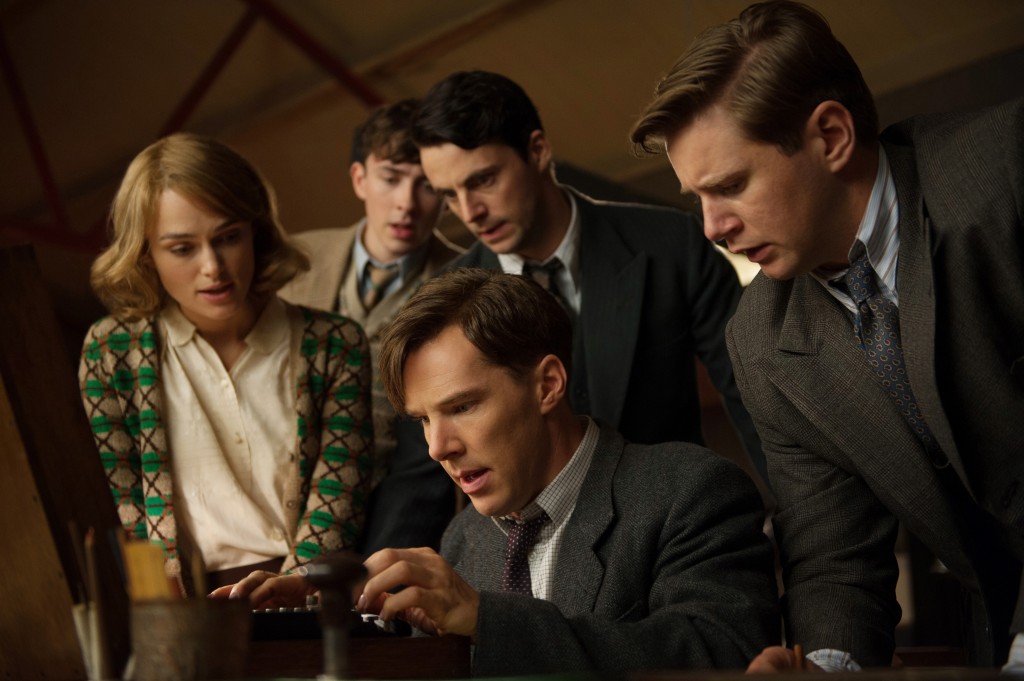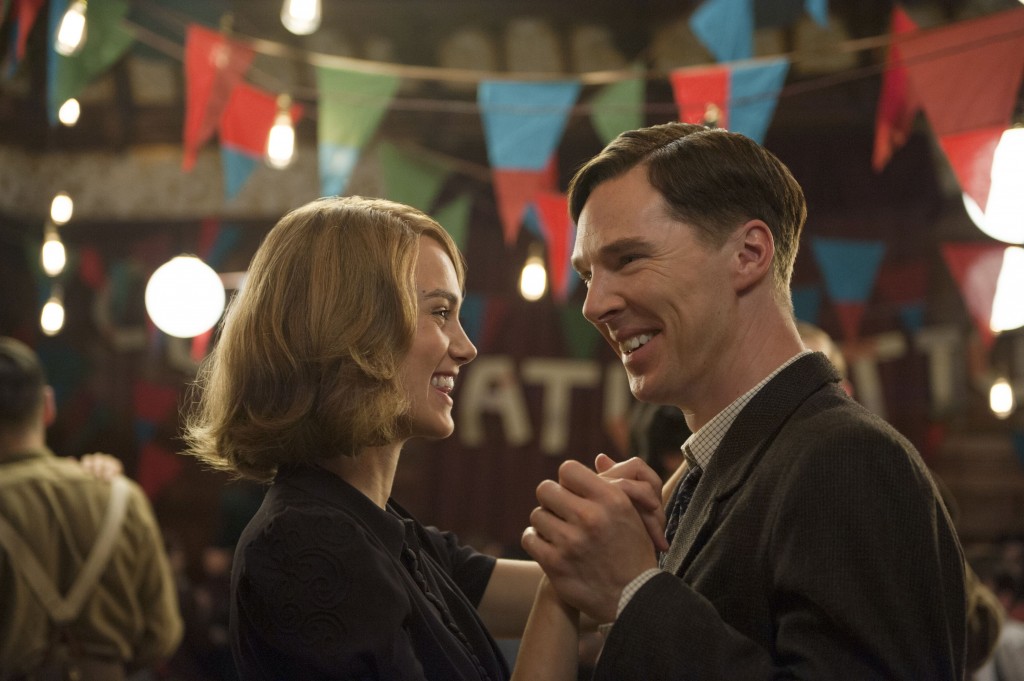I’ve always been interested in everything surrounding the Second World War. It was such a horrible and terrifying period, that I feel like I need to know every detail of it, to analyse what happened, how it started and ended. I feel the need to remember something that I didn’t live. Last year, I was fortunate enough to follow a class on WWII and Espionage; of course Alan Turing and the Enigma Machine were one of the many subjects of this course. Not many people knew who he was and I couldn’t be happier that Morten Tyldum tackled such an important part of this war with The Imitation Game.
Alan Turing, mathematician, logician and one of the most brilliant minds of the 20th century, finds himself at Bletchley Park, trying to crack the code of the unbreakable German coding machine named Enigma.
There are a few elements that I wasn’t expecting in a drama like this, and the first one was that it was actually quite funny. Many scenes have a good comic timing and Turing’s incomprehension of human nature as he faces certain social interactions always sparked up some laughs in the theater. The second was how it was cut to “fit a mold it.” For a British film, it was very Hollywood, and respected all the codes of a perfect Hollywood drama.
In addition, Tyldum didn’t go deep enough in depicting the horror of the situation. Only the end serves as a reality check to the audience, unveiling the entire horror of the situation: from the realisation that even if the machine was understood, they couldn’t completely use it, and that they couldn’t stop all german missions, to how it destroyed the lives of some of the people involved. But right before, we’re a little bit drowned in the exhilaration – yes exhilaration – and the thrill of Turing and his team trying to break the code. When Turing realized that some messages always started with the same 5 letters, and they all start running back to Bletchley, I swear I could have got up and cheered them. It’s not a bad idea to show a slightly happier version of some events, but it was maybe a little bit too much.
But even with its many flaws, I enjoyed it a lot, and it may be my favourite of the season -with of course, the brilliant The Grand Budapest Hotel – go figure.
The cast is very strong, and they all complement each other very well. Keira Knightley as Joan Clarke is just as good as Benedict Cumberbatch. She knows how to draw attention and can perfectly stand on her own in her scenes. Together, they form a great duo, with a superb dynamic. In addition, Matthew Goode has incredible charisma as Hugh Alexander, and Mark Strong as MI6 member Stuart Menzies is, as always when it comes to that kind of part, perfect. But most of all, I was really impressed by the young actor playing Turing, named Alex Lawther, who captures so perfectly Turing in the flashback scenes of his academic life.
Turing’s story turns me upside down. He saved so many lives with his machine, and greatly contributed to the end of World War II, but in the end he was treated as a criminal for being homosexual and left alone to rot and eventually die. The final scene is so powerful that it punched me right in the face with emotions. I didn’t know it was possible for Benedict Cumberbatch to be even better than he already is, and he may be everywhere these days, but there really is good reason for that. Out of all the performances seen amongst the movies nominated this year at the Oscars, he was the one that wrecked me the most – alongside two other forgotten actors: Jake Gyllenhaal in the excellent Nightcrawler, and David Oyelowo in Selma.
So far in the award season, The Imitation Game hasn’t been very lucky, but maybe the balance is gonna change at the Oscars. The Imitation Game is a must-see, and if you don’t see it for me or for yourself, see it for Alan Turing.
Rating: 4/5



